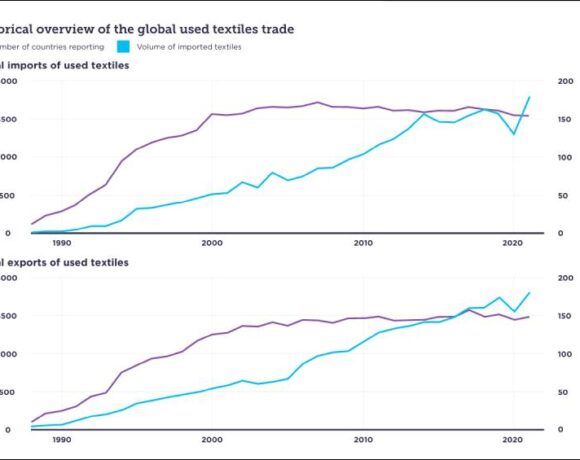PUMA Unveils World’s First T-Shirt Made From 100% Textile Waste

PUMA, a part of a multi-brand consortium that has launched the world’s first piece of clothing made entirely from textile waste, utilizing innovative bio-recycling technology developed by French company CARBIOS. This groundbreaking project has produced a plain white T-shirt crafted from mixed and coloured textile waste.
Using CARBIOS’ enzymatic biorecycling technology, polyester from textile waste was broken down into its fundamental building blocks, resulting in high-quality biorecycled polyester that matches the performance of traditional oil-based virgin polyester.
“PUMA aims for 100% of our polyester to come from textile waste. Today’s announcement marks a significant milestone in achieving this goal and advancing a circular economy in our industry,” stated Anne-Laure Descours, Chief Sourcing Officer at PUMA. “We must collaborate to scale this technology and maximize its impact. We are excited to contribute to this breakthrough and set new standards for fibre-to-fibre recycling.”
The consortium’s mission is to drive the textile industry’s transition towards a circular economy by advancing and industrializing CARBIOS’ enzymatic depolymerization technology, enabling 100% “fibre-to-fibre” recycling. This innovation will replace petroleum with textile waste as a raw material for producing polyester textiles, creating a sustainable cycle that minimizes waste and reduces carbon footprints.
“It may look like an ordinary T-shirt, but the technology behind it is extraordinary,” said CARBIOS CEO Emmanuel Ladent. “Achieving ‘fibre-to-fibre’ recycling is a remarkable technological feat. CARBIOS could not have accomplished this alone; our collaboration with consortium partners has helped us overcome numerous technical challenges to produce the world’s first enzymatically recycled T-shirt made entirely from biorecycled fibres.”
Currently, most recycled polyester is sourced from PET bottles, with only 1% of fibres being recycled into new fibres. This landmark achievement paves the way for the consortium’s ultimate goal of demonstrating a closed fibre-to-fibre loop using CARBIOS’ biorecycling process on an industrial scale.















